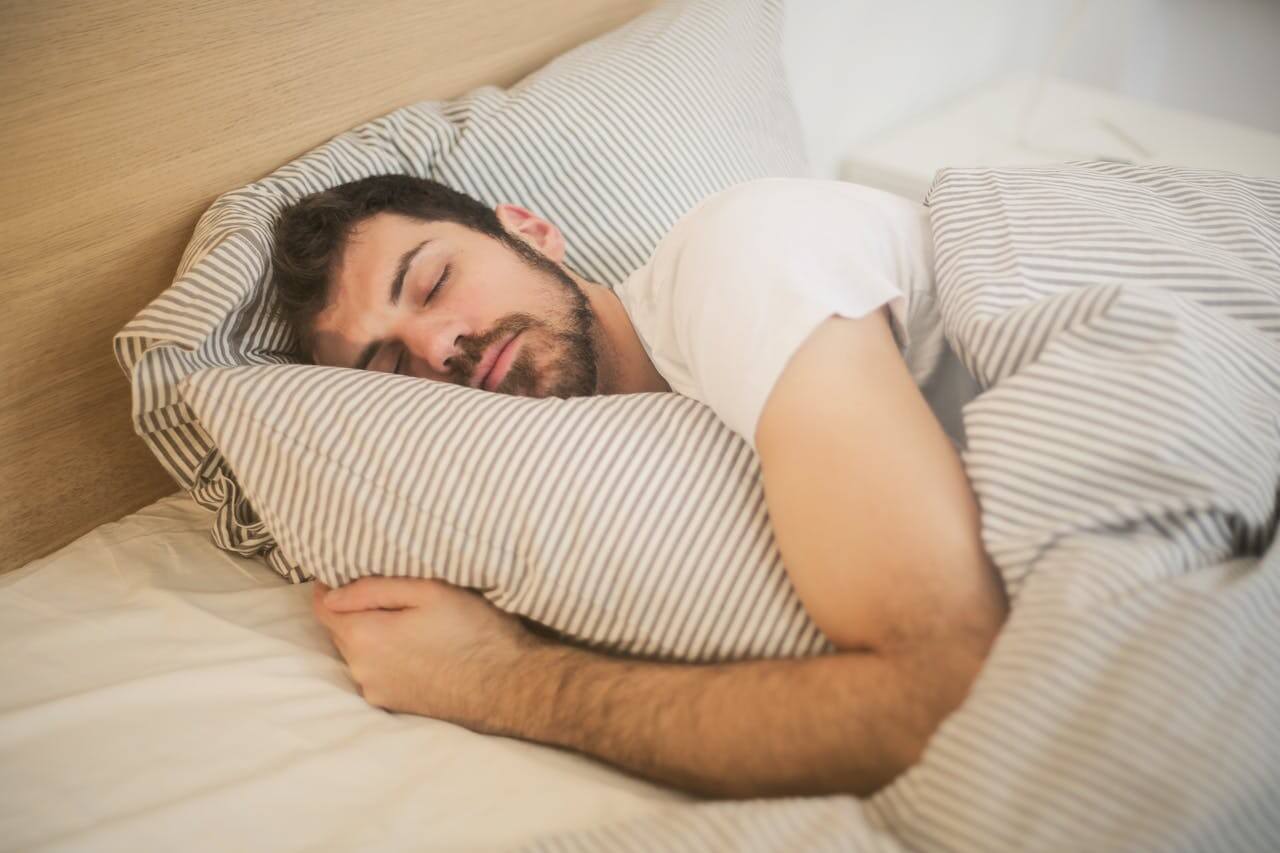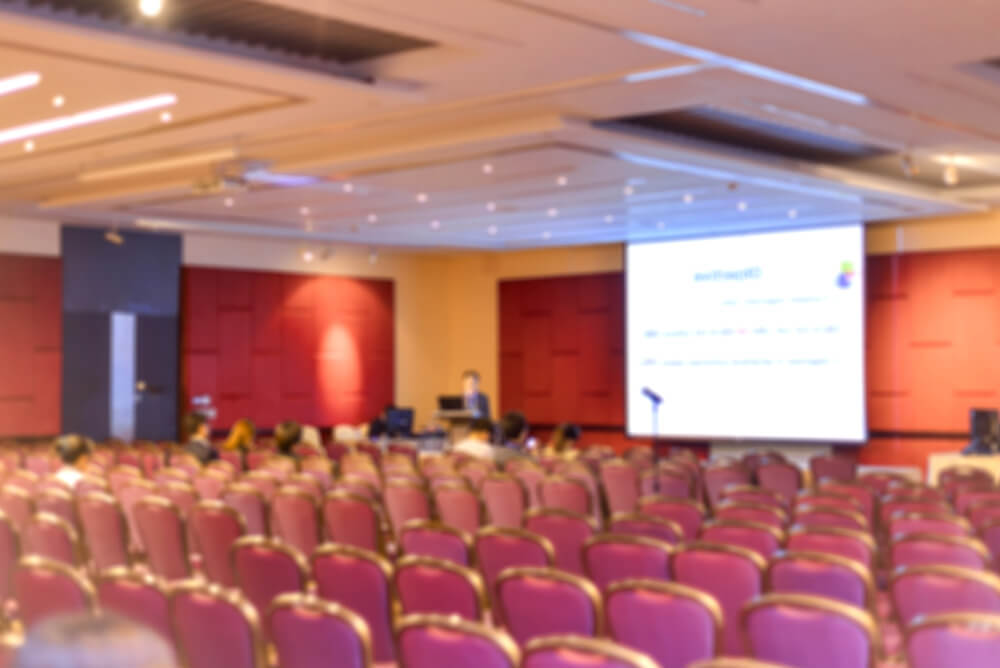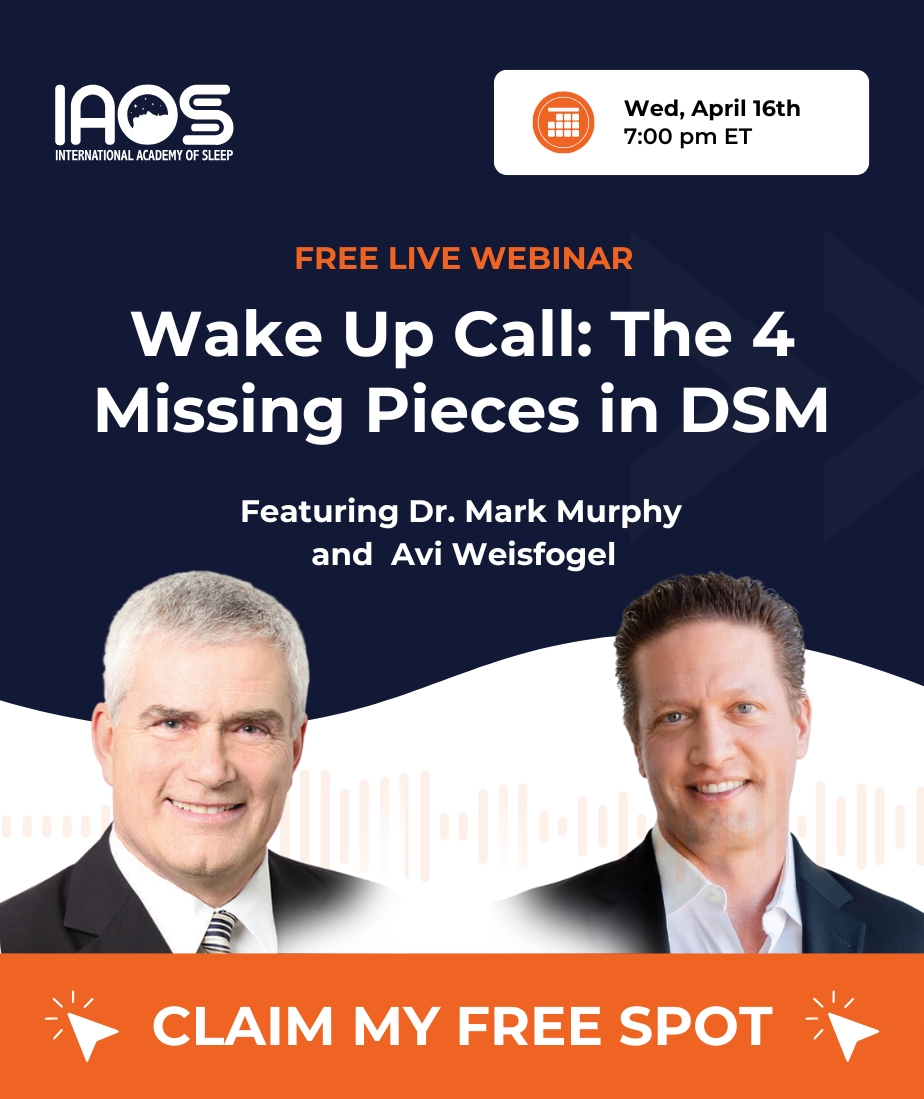Dentistry is one of the most competitive healthcare fields and everyday, dentists are struggling to differentiate themselves from ‘the other guy’ down the block. Take a quick drive around town and you’ll see a practice on almost every other street.
Most dentists have expanded their practices to offer implants or products like Invisalign. Since these are popular directions to move in it’s only a matter of time before they, too, become saturated.
There’s also the fact that DSO’s are buying up independently-owned practices at an alarming rate. It might seem like selling to one may be the only choice you have when you start to really feel those aches from hunching over your patients day in and day out.
There is a new, less-traveled path you can go down that will not only help you stand out, but increase your current revenue!
Dental sleep medicine (DSM) is a growing field, and with good reason – Roughly 70 million people in the US suffer from a sleep disorder with Obstructive Sleep Apnea (OSA) affecting 30 million of them. The trouble is only 6 million have been diagnosed, leaving the other 24 million to deal with this disorder on their own – many without even realizing it.
OSA is a sleep disorder in which the throat muscles relax to the point of obstructing the airway, causing the individual to stop breathing through-out the night. Sleep apnea is a ‘blue ocean’ that has incredible potential in both the saving of lives and increase in revenue. So why aren’t all dentists rushing to break into this field?
Here are 10 reasons why dentists don’t want to go into dental sleep, and how to work around them.
Reason #1: Misconceptions about Dental Sleep Medicine
It can be easy to hesitate breaking into something new when you have misconceptions about it, and dental sleep medicine is no exception. In fact, this article is practically a list about these misconceptions and the reason they exist is simply due to a lack of education on the matter.
For example, many dentists believe that building a sleep practice from the ground up is going to take forever. But the truth is that you already have some education and resources to help you build your sleep practice like the ability to create oral impressions. This is one of the basic skills you need to create an oral appliance for your sleep apnea patients.
Sleep is also commonly seen as another “added revenue fad” like Invisalign and implants, but the dentists providing those services don’t see the success our members do! Not even close.
IAOS has a fantastic roster of sleep professionals who have been general dentists (many still are) and know how to bridge the gap between general dentistry and dental sleep to find incredible success.They’ve already gone through the transition themselves, and know how to efficiently build a sleep practice from the ground up using what you already know.
The best way to shake off misconceptions like these is to learn as much as you can about dental sleep, and IAOS has plenty of information and resources.
Reason #2: High Costs of Implementation and Operation
A common reason for holding back from breaking into sleep medicine is the added cost. There’s a common misconception that dental sleep requires you to have specialized equipment, such as imaging machines to see the obstructed airways. While advanced imaging technology is a “nice-to-have,” it’s not a requirement that you spend over six figures on equipment to get started in dental sleep.
Your general dentistry practice can pull double duty by also being used for your dental sleep patients – you won’t need to open your practice in a separate building until you feel you can do so comfortably. Dental sleep medicine – unlike some specialties that require large investments in equipment – does not come with the same barriers to entry.
All you need in-house is the ability to take impressions.
DME companies like Prosomnus are the go-to for many doctors in IAOS, and there are several options in the market.
Then there’s the reimbursements you receive for delivering these oral appliances to your patients. As it stands, a lot of dentists will deliver an oral appliance to their patient, do the billing with the limited knowledge they have of it, and end up getting nothing in return. Zero. But there is a way to avoid this pitfall and the subsequent loss of revenue. We’ll go more into that later, but regarding the other costs of implementation, once your practice has been well-established, the revenue you’ll bring in will have paid for these costs a few times over.
Reason #3: Lack of Time to Implement
One of the major reasons dentists hesitate to jump into dental sleep is the lack of time to implement. As is, general dentistry is one of the most time-consuming fields of work. Dentists are in their practices well before they’re open to their patients and typically stay after closing time going through their patient files.
Finding time to implement something new seems almost impossible, but sleep isn’t the time-suck people believe it is.
IAOS has a stellar structure in place that allows dentists to successfully and sustainably implement sleep by only working 5 extra hours a week!If you cut down your TV time by 1 episode, suddenly you have time to implement and see your revenue increase.
However, even when it’s 5 hours a week, it may seem like more time than you have when you’re working by yourself. That’s where your hygiene team comes in – if trained in sleep, they can also help you out with the practice the same way they help you out in your general dentistry. Dental offices don’t run on just 1 person (the dentist), so why would a dental sleep practice?
And you also have IAOS in your corner! IAOS coaches support you with implementation calls to meet you exactly where you are in your dental sleep journey to get to that next level with concrete direction. No one-size-fits-all approaches here!
Reason #4: Sleep dentists don’t feel supported
Traditional dentistry has a large community of dentists, hygienists, and office administrators amongst others so it’s easy to have a support group when you need it. However, dental sleep is a much smaller world, and there aren’t many established communities, leaving sleep dentists on their own.
Venturing into something new with a group of people who have already been where you are – and where you want to be – is invaluable, but dentists find these communities hard to come by. This is actually one of the main reasons that drove the creation of IAOS. Through IAOS, sleep dentists have the opportunity to meet other sleep dentists at varying steps of their dental sleep journey.
The dental sleep community that IAOS has brought together includes some of the most successful sleep dentists around, who understand the need for mentorship and support.
General dentistry is a competitive field, but dental sleep is different – sleep dentists know there is a demand for more sleep practitioners and want to see more general dentists break into this field. Ultimately, the goal is to get as many people with sleep apnea treated, and these support groups want to see everyone thrive.
Reason #5: Dentists don’t feel confident doing sales or pitching
Dentists go into their field because they want to help people live a better life through great oral care, and they were taught it was a sustainable and reliable field. If they wanted to sell products to people, they would have gone into sales, and thus are not confident selling anything to their patients. The fear of having to sell oral appliances to their patients or pitch placing a sleep coordinator in doctors’ offices holds dentists back from practicing dental sleep. The truth is, selling isn’t as scary as it may seem.
Your sleep patient at this point has already identified a problem (obstructive sleep apnea) and they know they need a solution, otherwise, they’re putting themselves at risk of developing other conditions. It’s possible your patient may have already tried a CPAP device and found it wasn’t the right solution for them.
Using an oral appliance could be their last resort and their golden ticket to better health, so there isn’t much you have to sell your patient on. But even then, IAOS understands it can be difficult for someone who has never sold anything in their life to start doing so, especially since it was never a course taught in dental school.
IAOS fills that gap by offering courses and events that focus on the business side of dental sleep including sessions dedicated to sales. These sales courses include both selling the oral appliance to the patient and how to build relationships with doctors to make sleep coordinator placement a breeze. With so many people needing help with their sleep apnea, sales shouldn’t be a reason to avoid going into dental sleep.
Reason #6: Sleep has a limited patient base
In the grand scheme of things, dental sleep may be a niche field to go into, but that doesn’t mean there isn’t a large pool of patients to treat.
Few doctors and even fewer dentists screen for obstructive sleep apnea – they really only screen who they consider to be the ‘standard sleep patient’: older overweight men with existing health issues. This explains the previous statistics: 30 million people in the country suffer from obstructive sleep apnea and only 6 million are currently diagnosed.
You have 24 million people you could potentially diagnose and treat. Dental sleep being a niche field gives those who break into it an advantage. People seeking to get diagnosed and treated don’t have many options, and this could be what sets you apart from everyone else.
In fact, IAOS has a proven framework to help dentists build up a consistent and sustainable pool of patients to treat. Dentists won’t have to worry about the ‘feast and famine’ cycle where some months they may see a lot of sleep patients and little to none during other months. This framework takes the guessing out of patient acquisition.
Reason #7: Sleep has limited opportunities for growth
As a sleep dentist, you’re in a unique position. As an early adopter, you can build authority and position yourself as a leader in dental sleep. You can build your sleep practice separate from your traditional dentistry to solidify yourself as a sleep expert.
There’s another option that doesn’t require you to separate your practices. Sleep dentists can also screen their existing patients for sleep disorders, and get them the treatment they need. Since most doctors don’t properly screen for sleep, they’ll become part of the 24 million people in the country suffering with sleep apnea without knowing it. However, if you screen your patients while they’re in your chair for another procedure, you’re halfway there!
And IAOS’s Dental Hygiene Academy of Sleep program provides training to convert your general dentistry patients into sleep patients, so you’ll always have a pool of potential patients.
You have more opportunities for dental sleep success than you realize, and these are only a couple of the ways you can find it.
Reason #8: Confusion around billing and reimbursements
While dental professionals are certainly no strangers to medical billing, dental sleep can be a little tricky to properly bill and as a consequence, many sleep dentists find their reimbursement claims getting rejected. Many dentists even get their claims approved, only to later be audited and return the money to the insurance companies.
This is enough to send dentists running for the hills, but properly billing sleep doesn’t have to be a nightmare. Sometimes dentists find themselves feeling like they need to handle every aspect of their practice, but due to the complexity of billing, IAOS recommends outsourcing to a professional billing company.
When properly billed, dentists can ensure they get their oral appliances reimbursed, every single time, but that does require quite a bit of expertise in billing. This is where the professional company comes in. The same way you wouldn’t handle the electrical in your practice building because it’s not something you’re skilled in, billing also needs to be handed off to a professional.
IAOS has an extensive network of sleep-adjacent professionals including those in billing who we refer our members to. Secured reimbursements and higher revenue are just a chat away.
Reason #9: Someone is already doing dental sleep in their area
What if you decide dental sleep is the way to go for an increase in revenue and differentiation and then you discover another dentist near you is also doing sleep? The obvious answer might be to just quit because you can’t have TWO dental sleep doctors nearby, right? Not at all. If the possibility of having another provider nearby was enough reason to not go into business, nobody would.
Dental sleep isn’t even close to reaching the kind of saturation that traditional dentistry sees on a daily basis, and even if it were to reach that level, it’s nothing to worry about. For one reason or another, patients choose to visit one provider over another, and your job is to make it clear to them why they should choose you over someone else.
Dr. Brandon Hedgecock is one of the top sleep dentists in Austin, Texas and brings in a 7-figure revenue annually. He isn’t the only sleep dentist making that kind of revenue in his immediate area, but that doesn’t matter. His patients choose to go to him because he has taken the time to build relationships with his patients and he has multiple locations for his patients’ convenience.
Even if you have multiple sleep dentists near you, you can still have a successful practice.
Reason #10: Dentists will be competing with sleep doctors
Similar to their worry about other sleep dentists, dentists trying to stand out from others by going into sleep are hesitant to go all in out of fear of competing with sleep doctors. The truth is, you aren’t truly competing with them – if done right, you’ll actually form partnerships and relationships with them.
Your general dentistry patients may not be aware of their sleep disorders because other doctors are not properly screening them for sleep-related issues. If the patient doesn’t know they have a sleep problem, they can’t get treatment, so you and the sleep doctor have the same goal: fill the gap that other doctors leave through their lack of screening. Once you’ve screened and tested your patient, you’ll work with a sleep doctor to interpret the results and diagnose them. From there, you’ll just have to take their impressions for their oral appliance!
What’s next for you?
Now that we’ve covered the top 10 reasons dentists don’t want to do dental sleep medicine and the ways you can overcome these challenges, what’s the next step?
Request a call with one of our support coaches, and we can tell you what our next event is and what you can expect from attending.
Our team will also go over the various programs IAOS has to offer and how they can support you on your dental sleep journey. The most successful dental sleep professionals aren’t doing sleep on their own – they have a reliable and supportive community they can always count on.





